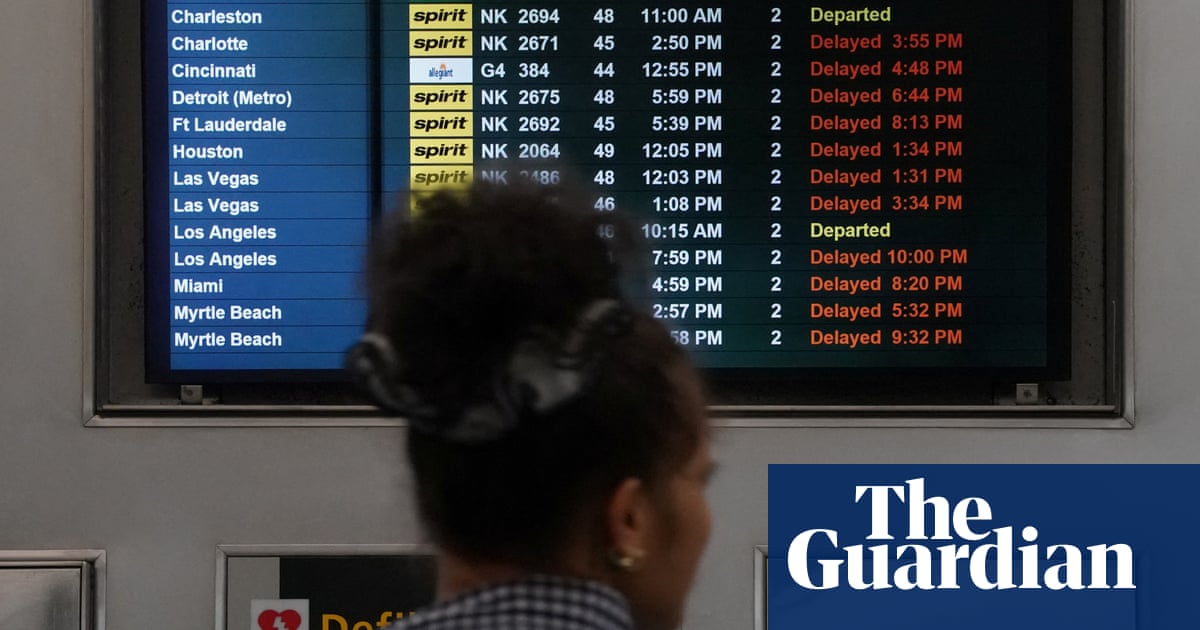The US transportation secretary, Sean Duffy, plans to reduce the number of flights in and out of the Newark Liberty international airport for the “next several weeks”, as the facility – one of the country’s busiest airports –struggleswith radar outages, numerous flight delays and cancellations due to a shortage of air traffic controllers.
Speaking on NBC’s Meet the Press, Duffy said he would convene a meeting with all the airlines flying out of Newark this week to determine the reduction, adding that it would fluctuate, with a larger reduction coming in the afternoons when international flight arrivals make it busier at the airport, one of the main hubs serving the New York City area.
“We want to have a number of flights that if you book your flight, you know it’s going to fly, right?” he said. “That is the priority. So you don’t get to the airport, wait four hours, and then get delayed.”
The Federal Aviation Administration (FAA) said radar at the facility in Philadelphia that directs planes in and out of Newark airport went black for 90 seconds at 3.55am Friday, similar to an incident on 28 April.
On Sunday morning, a separate air traffic control equipment outage caused the FAA to implement a ground stop of about 45 minutes for Newark flights, CNN transportation reporter Pete Munteanwrotein an X post that cited an advisory from the air traffic control system command center.
There has been an average of 34 arrival cancellations per day since mid-April at Newark, according to the FAA, with the number of delays increasing throughout the day from an average of five in the mornings to 16 by the evening. They tend to last 85 to 137 minutes on average.
TheTrump administrationproposed a multibillion-dollar overhaul of the US air traffic control system on Thursday that includes six new air traffic control centers as well as technology and communications upgrades at all of the nation’s air traffic facilities over the next three or four years.
Duffy said on Sunday that he also planned to raise the mandatory retirement age for air traffic controllers from 56 to 61 as he tries navigating a shortage of about 3,000 people in that specialized position.
He plans to give those air traffic controllers a 20% upfront bonus to stay on the job. However, he says many air traffic controllers choose to retire after 25 years of service, which means many retire at about the age of 50.
“These are not overnight fixes,” Duffy said. “But as we go up – one, two years, older guys on the job, younger guys coming in, men and women – we can make up that 3,000-person difference.”
Asked on Sunday whether it was safe to fly in and out of the Newark airport given the various issues there, United Airlines chief executive officer Scott Kirby – whose company uses the facility as a hub – said, “It absolutely is.”
“And the reason is, when these kinds of outages happen, we train for them,” Kirby added. “We have backup procedures. We have backups to backups to backups to keep the sky safe, which is always the number one priority.”
Guardian staff contributed to this report
